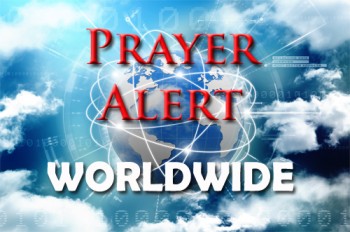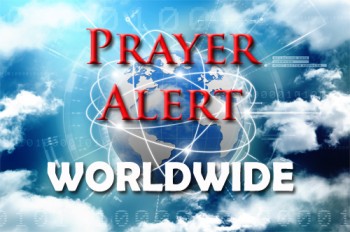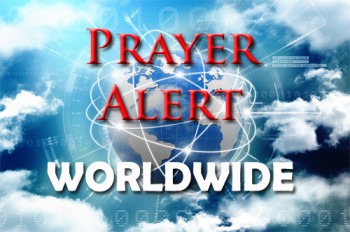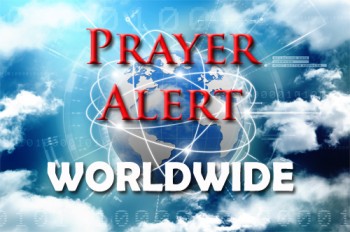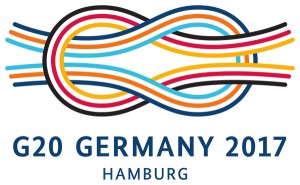Displaying items by tag: G20
G20 deadlock
Finance ministers of the world's largest economies failed to agree on a closing statement after China refused to condemn Russia's invasion of Ukraine or accept parts of G20’s statement deploring Russia's aggression ‘in the strongest terms’. Moscow said ‘anti-Russian’ countries had ‘destabilised’ the G20 after China’s plan was viewed as pro-Russian. President Zelenskiy will meet China’s president to discuss China’s cease-fire proposal, saying a meeting would be ‘important for world security.’ China's 12-point ‘political settlement’ plan does not require Russia to leave Ukraine and was met with scepticism from Ukraine’s allies. Emmanuel Macron called on Beijing to ‘help us pressure Russia’ to end the war as peace was only possible if ‘Russian aggression stopped, troops withdraw and territorial sovereignty of Ukraine and its people is respected’. Joe Biden said, ‘China as a peacemaker in Ukraine is not rational. Putin's applauding it, so how could it be any good? I've seen nothing in the plan that would benefit anyone other than Russia, if China's plan were followed.’ See also
World: G20 must combat coronavirus corruption
Six months ago Covid-19 was declared a pandemic and has turned the world upside down. Besides the devastating human toll there is the disturbing reality of rising authoritarianism and misuse of relief funds. The growing corruption related to Covid-19 spending calls for global, multilateral solutions. The G20 is one of the few international forums that has the potential to shape and implement policy to fight this crisis. While they promised US$21 billion to fight Covid in June, they have stayed silent on how they will ensure that the funds reach those who need them the most. Last week was the first time the G20 anti-corruption group met in seven months. Also the pandemic has exposed vulnerabilities in public contracting systems around the world and shown how unprepared governments are to buy safely during emergencies. South Africa is one of the worst offenders: see
G20 response to pandemic
G20 health ministers had a virtual meeting on 19 April. They agreed that lifting lockdown restrictions is not the end of the epidemic; it is just the beginning of the next phase, and countries must educate, engage, and empower their people to prevent any resurgence. They must have the capacity to detect, test, isolate and care for every case and trace every contact. Health systems must have the capacity to absorb any increase in cases. There is deep concern that the virus is gathering pace in countries that lack the capabilities of G20 countries. Urgent support is needed as they respond to the pandemic, while ensuring that other essential health services can continue. One of the biggest challenges which G20 and WHO face in Africa (and other countries) is the critical shortage of supplies, and the lack of ability to deliver them because of weak supply chains.
Australia urges G20 action on wildlife markets
The Australian government wants G20 countries to take action on wildlife wet markets, calling them a ‘biosecurity and human health risk’. It is not calling for a ban, but believes they may need to be ‘phased out’. Although wet markets sell fresh meat and fish, some also sell wildlife. It is believed that coronavirus began in a Chinese wet market selling foxes, wolf cubs, civets, turtles, pangolins, and snakes. Australia’s agriculture minister said, ‘A market like the Sydney fish market is perfectly safe. But when you add live exotic wildlife, it opens up human risks to the extent we have seen.. China itself reported to the World Organisation for Animal Health that a wet wildlife market was the cause of Covid-19. WHO said, ‘When these markets are allowed to reopen, it should only be on the condition that they conform to stringent food safety and hygiene standards’.
Global: post-G20 foreign bribery unchecked
China, Mexico and Russia are just some of the countries represented at this year’s G20 summit which are failing to enforce their laws and promises against corruption, and in particular foreign bribery. International bribery is one of the many ways in which corruption heavily impacts sustainable development and economic growth. It hinders fair access to markets as well as progress on today’s most pressing issues like education, healthcare, gender equality and the climate crisis. To make economic development work for all, anti-corruption should be mainstreamed into every decision and policy. G20 governments must enable clean contracting provisions, publish open registers of beneficial owners of companies, and create strong whistle-blower protection. G20 leaders must focus on implementing their commitments and not feel tempted just to keep making more promises.
Argentina: G20 and state-owned enterprises
Argentina has recently hosted a meeting of the G20 anti-corruption group, with national delegations and international organisations seeking to address the best ways of curtailing corruption and promoting integrity in state-owned enterprises (SOEs). Controlled by national governments, SOEs rank among the largest companies in the world and are often some of the biggest employers in their country. They are central to the daily lives of citizens, providing critical goods and public services in sectors such as transport, utilities, health and telecommunications. When they indulge in corruption and malpractice, citizens feel the impact: trains are delayed, households go without power or water, and the sick are deprived of essential medical treatment. SOEs are particularly vulnerable to corruption because of their closeness to politicians and public officials, and the scale of resources, contracts and operations they control.
G20 – Report
Friends, here is an update from Bernd Oettinghaus, the coordinator of the prayer effort in Hamburg and Berthold Becker of Kainos Ministries on what has been happening there during the recent G20:
Thanks for all who responded to our spontaneous prayer initiative joining in with the many initiatives mobilizing prayer around the globe.
The G20 finished peacefully and in a positive spirit which is an answer to prayer. Also on Saturday around 75,000 people were able to demonstrate peacefully and present their issues.
Saturday night there were riots again but much less than expected. This was certainly an answer to prayer. The force of the riots was extreme, much damage and around 470 police injured. However, the Lord hindered more evil.
The government leaders promised unbureaucratic help and compensation for all damage done over this weekend. On Sunday thousands of people of all ages spontaneously followed a grass roots initiative to clean up the streets. https://www.bing.com/videos/search?q=hamburg+clean+up+after+g20+youtube&view=detail&mid=169FB132E4C493CFFC7F169FB132E4C493CFFC7F&FORM=VIRE
It was great to be in a net of international intercession. The results of the Summit are less bad as expected. The heads of the 20 nations keep talking instead of walking alone or against each other. But we have to continue in prayer for the world leadership.
In my nation we are cleansing the political arena and weeping out a hidden sympathy for the extrem left wing and asking questions about the strategy of the police, why they let the anarchy situation on Friday night grow for 3-4 hours.
One other result is: The radical left-wing movement and their open-ness for violence is no longer accepted, which helps to stand against it, but on the other side as the danger in it to move in the underground scene.
We will have a prayer conference from 1st to 3rd September 2017 in Berlin where we want to target the leftwing spirit from the 68revolution including the philosophical movement of Adorno and Horxheimer „Frankfurter Schule“, the terroristic movement of the „Red Army Fraction“ from the 90th. The beginning of this movement is over now for 50 years, and we want to deal with all this socialist movements, kommunist and maoisem/leninism in our nation and in Europe. We also invite Chinese prayer leaders to help in this issue. www.waechterruf.de
We take those days of the G20 as a God given insight in the chaotic powers behind this still alive movement in Europe/the world. We do not want a new wave of radical violent movements in Germany and Europe. Not on the right wing and also not on the left wing.
We do not want a police, which is not under the political control of democratic forces, even no unique individuals or groups among the police fighting their own battles.
We want to learn as the Body of Christ in my nation, to stand together in Prayer alongside the political leaders and the police forces. On 24th September 2017 we will have a national vote.
Blessings and thanks to all prayer warriors
Bernd Oettinghaus / Berthold Becker
www.waechterruf.de / www.kainos.de
Charities say G20 plans for Africa are flawed
This year’s G20 launched ‘Africa Partnership’, but charities are wary because it focuses on increasing private investment in the continent. Participating countries were invited to develop their own plans, to reduce the risk for private investors. At the summit, Britain set out proposals to build a partnership with a view to creating ‘more opportunities for London to become the finance hub for Africa’. Christian Aid described the G20 plan as badly flawed as it didn’t mention climate change. Oxfam said that it is important to recognise that growing economies will not automatically provide people with enough food to eat or life-saving medicines - especially as Africa is home to some of the most unequal countries on earth. Global Justice Now described it as ‘more like a partnership to exploit Africa - foisting the demands of international finance onto Africa in return for a bit of aid.’
G20: key concerns
At a G20 meeting this week, financial leaders from the world's biggest economies failed to agree on trade, highlighting a global shift towards protectionism (for ten years, the finance ministers and central bankers of the world's top twenty economies have rejected protectionism and endorsed free trade). Failure to agree on a commitment to keep global trade free and open will have negative consequences. Watered-down free trade commitments reflect the mood of anti-globalisation that Donald Trump endorses. Another Trump ‘win’ is that the G20 dropped a reference, used last year, to its readiness to finance climate change, as agreed in Paris in 2015, because of opposition from the United States and Saudi Arabia. Trump has called global warming a ‘hoax’ concocted by China to hurt US industry, and has vowed to scrap the Paris climate accord aimed at curbing greenhouse gas emissions. Pray for his administration to reconsider its proposed 31% cut to the Environmental Protection Agency's budget. See also

